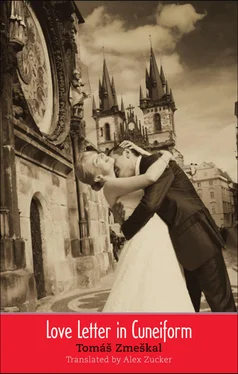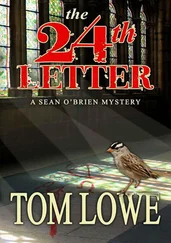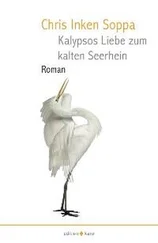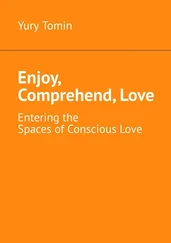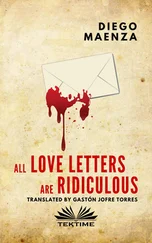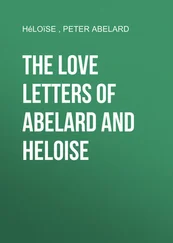“I thought it was true love.”
“True? I never knew one truer. The fact that we never shared a room together or exchanged bodily fluids was insignificant.”
“And then what? What happened after that?”
“Nothing. A few years later I married my wife. And we’ve been together ever since.”
“And her? Klára?”
“I think I’ve had more cognac than advisable. But I’ll find my way back to the hotel. I just might need to lean on you a little.”
“But what about Klára?”
“I’ve already said more than I should have. They’re about to close up and we need to pay.”
20. LAST LETTER, REPORT ON AN EXHIBITION AND A FEW BROKEN CHAIRS
Hi sis,
In your last letter you asked about my impression of Czechs and Bohemia, and if I would think about it before I came back to London. So I’ve thought about it and here’s what I’ve come up with, but keep in mind this is “for your eyes only,” or as they say here, přísně tajné (“strictly secret”). Being part Czech ourselves, I reckon we’re closer to them than any other foreigners, though on the other hand it may also mean I’m a bit biased toward them. But the Czechs are strange creatures. The idea of “being Czech” basically boils down to being a small people with a common history and historical experience who, on top of that, speak Czech. For example, they’re shockingly cold. Definitely colder than Brits. It’s virtually unthinkable for anyone in Prague or Hodonín to crack a smile on the street. And the way salespeople and waiters act is really something to see. They’re rude and crude, and sometimes even swear at customers!! I didn’t believe it when I read it in the guidebooks, but it’s worse than you can imagine. You go to buy something, potatoes, for instance, and you pretty much have to expect the salesman’s going to yell at you. Can you imagine? Brilliant! Worth a trip, don’t you think? Another thing that’s even better is even though they act like that, they have this amazingly deep-seated idea that they’re one of the most educated, most cultured nations in the world. You’ve really got to hand it to them! First of all, they don’t even pay their teachers — that is, they pay them about as well as teachers in Albania. Secondly, they spend less money on culture per capita than Russia. As a result, about four times more tourists go to Budapest each year than Prague, even though Prague’s much more beautiful. But the Czechs just assume they don’t have to tell anyone, since everyone already knows. I guess you could say they consider themselves the navel of the world. They haven’t realized yet that that’s what leads to all the racism and discrimination against minorities, and it’s only going to get worse. The bottom line is, facts and information hardly mean anything here. I’d almost say it’s the country’s hallmark. If the facts don’t agree with them, then too bad for the facts. They also seem to consider themselves cynics, though that’s probably due to the rapid transition from communism to capitalism. As Oscar Wilde said, a cynic is a man who knows the price of everything and the value of nothing. You know what I mean. Like everyone else in Eastern Europe (except the Poles), people here are very shy and reserved in public. They also tend to assume that anyone who’s depressed must be a wise and deep thinker. I can go into it more some other time, but basically they believe that anyone who talks about death or the universe must be really important, even though in most cases the poor guy probably just needs a shrink. People here also have a strange attitude toward psychology and philosophy. If you can imagine, more students want to study psychology at university here than any other field. Amazing. Supposedly it’s been that way for several generations now. I wonder, have you ever heard of any major school of thought in Czech psychology? It’s kind of like, Name the three most famous Belgians. Anyway. It’s probably because Czechs are the biggest atheists in Europe, and therefore the world. It has to come out somehow. It’s also unbelievable with philosophy. Yesterday I read the obituary of a film director from Scandinavia in one of the local papers. It mentioned Plato twice and Aristotle once, but nothing about who the director studied with or who he influenced, none of that. Can you name three major Czech philosophers? Navel gazing again. Masaryk maybe? But what he did was more like what we call sociology today. As for the lack of religion, there’s sort of a natural plebeianism here. I’ve noticed, for instance, that nobody dresses up at all for Christmas or birthdays. You would never see a woman put on a nice dress and a man put on a suit for a family dinner at home, there’s no such thing here. Sometimes they walk around in tracksuits at home, even if they don’t play any sports! At first I saw it as just a really appealing casualness, but then I realized that, apart from festive occasions like a holiday meal at home, nobody ever wears a suit or any nice clothes at all. There are all kinds of things they don’t do that people just do normally everywhere else in Europe. But now for the positives: It’s really great talking to people once you get to know them. They’ve got a terrific black sense of humor and a wonderful attitude toward old people. When an old person gets on the bus or the tram and there aren’t any seats free, someone always gets up so they can sit down. It’s totally normal. I’ve also noticed that family is really, really important, almost as much as in Italy, even if at first glance nobody would ever think to compare the two countries. People our age are pretty much the same as people under thirty in England or Holland or anywhere else. In private, they’re incredibly warm and will tell you all about their lives, even the most intimate details, over a cup of coffee. In other words, something no Brit would ever do. In that sense they’re extremely open. It isn’t easy to get your bearings here, but every day I learn something new. Under the right conditions, the Czechs can be a bit like the Germans, but that’s one thing you absolutely cannot say to them. It’s like telling someone in England they need a bath. Even if you’re right, they would probably take it as a tremendous insult. But they’re much more like the Germans than any other neighboring country. The Czechs have a special relationship to them: it’s like they admire them and are repelled by them at the same time. In that way I guess they’re probably the same as the rest of Europe. They also have special manners here about what to say and what not to say so the other person doesn’t “lose face.” Dad used to do it sometimes, even though it didn’t make any sense at home. Say somebody in the building leaves his junk out in the hallway and it’s getting in everyone’s way. I say: Why don’t you tell him to move it? And they say, no, as long as they can squeeze by it’s OK, even though it gets on their nerves and they obviously mind. Sometimes I feel like I’m in a samurai movie, set in medieval Japan. The etiquette’s so complicated and plotted out to the last detail. But younger people don’t bother with it too much anymore. So, in a nutshell, that’s my answer to your questions before I leave Prague. The rest is from my work for the bank, which I wrote you about last time. I collected the documents, but my boss Karel was the one who put the whole thing together. Happy reading.
George
P. S. It doesn’t make much sense to me, but write me what you think.
Signature of conformity: Head of Department Karel Verner
Documents prepared by: Jiří Novák
Status: Confidential
Re: Notes on the history of trade fairs in the Czech lands, which may suggest some solutions to problems caused by debt remaining from the Universal Czechoslovak Exhibition of 1991.
Читать дальше
